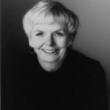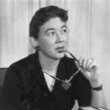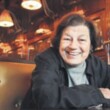The view from Castle Rock
Description
A powerful new collection from one of our most beloved, admired, and honored writers. In stories that are more personal than any that she’s written before, Alice Munro pieces her family’s history into gloriously imagined fiction. A young boy is taken to Edinburgh’s Castle Rock, where his father assures him that on a clear day he can see America, and he catches a glimpse of his father’s dream. In stories that follow, as the dream becomes a reality, two sisters-in-law experience very different kinds of passion on the long voyage to the New World; a baby is lost and magically reappears on a journey from an Illinois homestead to the Canadian border. Other stories take place in more familiar Munro territory, the towns and countryside around Lake Huron, where the past shows through the present like the traces of a glacier on the landscape and strong emotions stir just beneath the surface of ordinary comings and goings. First love flowers under the apple tree, while a stronger emotion presents itself in the barn. A girl hired as summer help, and uneasy about her “place” in the fancy resort world she’s come to, is transformed by her employer’s perceptive parting gift. A father whose early expectations of success at fox farming have been dashed finds strange comfort in a routine night job at an iron foundry. A clever girl escapes to college and marriage. Evocative, gripping, sexy, unexpected—these stories reflect a depth and richness of experience. The View from Castle Rock is a brilliant achievement from one of the finest writers of our time.
More Details
9780786294961
9780739349304
9781400042821
Table of Contents
From the Book - First Vintage International edition.
From the Large Type
Excerpt
Similar Titles From NoveList
Similar Authors From NoveList
Published Reviews
Booklist Review
Munro is universally accepted as one of the outstanding writers of the short story in English, but her new book is both frustrating and exhilarating. The nerve it took, to pick up and cross the ocean, remarks a character in one of the stories in the first--the frustrating--grouping of stories; that statement could stand as the theme underlying the entire book. Munro has always relied on characters' personal and familial histories as chief material from which her beautifully articulated stories are fashioned, and this traditional type of Munro story populates the second half of this collection. There, Munro traditionalists will find much to feast on. It is the first half of the book that is problematic. She introduces these stories as fiction; topically, they are about her Scottish ancestors coming to Canada and the roots and branches established therein. Writing style--yes, predictably limpid and lovely. And they are as psychologically astute as one would expect from a very smart writer. But they taste like autobiographical essays; her intrusions into the prose not as narrator but as actual author prove distracting and erode the veil of suspension of disbelief. On the other hand, only purists will howl over the issue of authorial intrusion, and the vast number of fiction readers will be completely absorbed. --Brad Hooper Copyright 2006 Booklist
Publisher's Weekly Review
Ten collections of stories and one novel have made Alice Munro one of the most praised fiction writers of our time. In The View from Castle Rock her full range of gifts is on display: indelible characters, deep insights about human behavior and relationships, vibrant prose, and seductive, suspenseful storytelling. Munro, in a foreword, tells how, a decade ago, she began looking into her family history, going all the way back to 18th-century Scotland. This material eventually became the stories presented here in part 1, "No Advantages." Munro also worked on "a special set of stories," none of which she included in previous collections, because they were "rather more personal than the other stories I had written." They now appear here in part 2, "Home." With both parts, Munro says, she has had a free hand with invention. Munro has used personal material in her fiction before, but at 75, she has given us something much closer to autobiography. Much of the book concerns people who have died, and places and ways of life that no longer exist or have been completely transformed, and though Munro is temperamentally unsentimental the mood is often elegiac. One difficulty that can arise with this kind of hybrid work is that the reader is likely to be distracted by the itch to know whether an event really occurred, or how much has been made up or embellished. In the title story, the reader is explicitly told that almost everything has been invented, and this enthralling multilayered narrative about an early 19th-century Scottish family's voyage to the New World is the high point of the collection. On the other hand, "What Do You Want to Know For?" at the heart of which is an account of a cancer scare Munro experienced, reads like pure memoir and seems not only thin by comparison but insufficiently imagined as a short story. Perhaps none of the stories here is quite up to the mastery of earlier Munro stories such as "The Beggar Maid" or "The Albanian Virgin." But getting this close to the core of the girl who would become the master is a privilege and a pleasure not to be missed. And reliably as ever when the subject is human experience, Munro's stories-whatever the proportions of fiction and fact-always bring us the truth. (Nov.) Sigrid Nunez's most recent novel, The Last of Her Kind, will be published in paperback by Picador in December. (c) Copyright PWxyz, LLC. All rights reserved
Library Journal Review
Munro's newest story collection gracefully reconstructs her family history. (c) Copyright 2010. Library Journals LLC, a wholly owned subsidiary of Media Source, Inc. No redistribution permitted.
Booklist Reviews
Munro is universally accepted as one of the outstanding writers of the short story in English, but her new book is both frustrating and exhilarating. "The nerve it took, to pick up and cross the ocean," remarks a character in one of the stories in the first--the frustrating--grouping of stories; that statement could stand as the theme underlying the entire book. Munro has always relied on characters' personal and familial histories as chief material from which her beautifully articulated stories are fashioned, and this traditional type of Munro story populates the second half of this collection. There, Munro traditionalists will find much to feast on. It is the first half of the book that is problematic. She introduces these stories as fiction; topically, they are about her Scottish ancestors coming to Canada and the roots and branches established therein. Writing style--yes, predictably limpid and lovely. And they are as psychologically astute as one would expect from a very "smart" writer. But they taste like autobiographical essays; her intrusions into the prose not as narrator but as actual author prove distracting and erode the veil of suspension of disbelief. On the other hand, only purists will howl over the issue of authorial intrusion, and the vast number of fiction readers will be completely absorbed. ((Reviewed September 1, 2006)) Copyright 2006 Booklist Reviews
Library Journal Reviews
Munro's newest story collection gracefully reconstructs her family history. Copyright 2006 Reed Business Information.
Library Journal Reviews
With this new collection, Munro (Runaway ) more than lives up to her reputation as a master of short fiction. In 12 exquisitely constructed tales, she draws on family lore and letters to interpret the history of her Laidlaw relatives, a tough bunch from Scotland's Ettrick Valley that eventually emigrated to the New World. The title story, set in 1818, details a transatlantic voyage undertaken by six Laidlaws for whom ocean sailing is a totally new experience. Their struggles in adjusting to shipboard life anticipate challenges ahead in America as their fears and hopes culminate in the arrival of baby Isabel, all her life to be known as one "born at sea." In "No Advantages," a modern-day narrator's visit to Ettrick reveals what the family gained (and perhaps lost) by leaving the legend-haunted valley, while other stories explore how the harsh realities of wilderness pioneering affect several generations. All the narratives exhibit Munro's keen eye for realistic details and her ability to illuminate the depths of seemingly mundane lives and relationships. Highly recommended.—Starr E. Smith, Fairfax Cty. P.L., VA
[Page 64]. Copyright 2006 Reed Business Information.Publishers Weekly Reviews
[Signature]
Reviewed by Sigrid Nunez.
Ten collections of stories and one novel have made Alice Munro one of the most praised fiction writers of our time. In The View from Castle Rock her full range of gifts is on display: indelible characters, deep insights about human behavior and relationships, vibrant prose, and seductive, suspenseful storytelling.
Munro, in a foreword, tells how, a decade ago, she began looking into her family history, going all the way back to 18th-century Scotland. This material eventually became the stories presented here in part 1, "No Advantages." Munro also worked on "a special set of stories," none of which she included in previous collections, because they were "rather more personal than the other stories I had written." They now appear here in part 2, "Home." With both parts, Munro says, she has had a free hand with invention.
Munro has used personal material in her fiction before, but at 75, she has given us something much closer to autobiography. Much of the book concerns people who have died, and places and ways of life that no longer exist or have been completely transformed, and though Munro is temperamentally unsentimental the mood is often elegiac.
One difficulty that can arise with this kind of hybrid work is that the reader is likely to be distracted by the itch to know whether an event really occurred, or how much has been made up or embellished. In the title story, the reader is explicitly told that almost everything has been invented, and this enthralling multilayered narrative about an early 19th-century Scottish family's voyage to the New World is the high point of the collection. On the other hand, "What Do You Want to Know For?" at the heart of which is an account of a cancer scare Munro experienced, reads like pure memoir and seems not only thin by comparison but insufficiently imagined as a short story.
Perhaps none of the stories here is quite up to the mastery of earlier Munro stories such as "The Beggar Maid" or "The Albanian Virgin." But getting this close to the core of the girl who would become the master is a privilege and a pleasure not to be missed. And reliably as ever when the subject is human experience, Munro's stories—whatever the proportions of fiction and fact—always bring us the truth. (Nov.)
Sigrid Nunez's most recent novel, The Last of Her Kind, will be published in paperback by Picador in December.
[Page 42]. Copyright 2006 Reed Business Information.


































